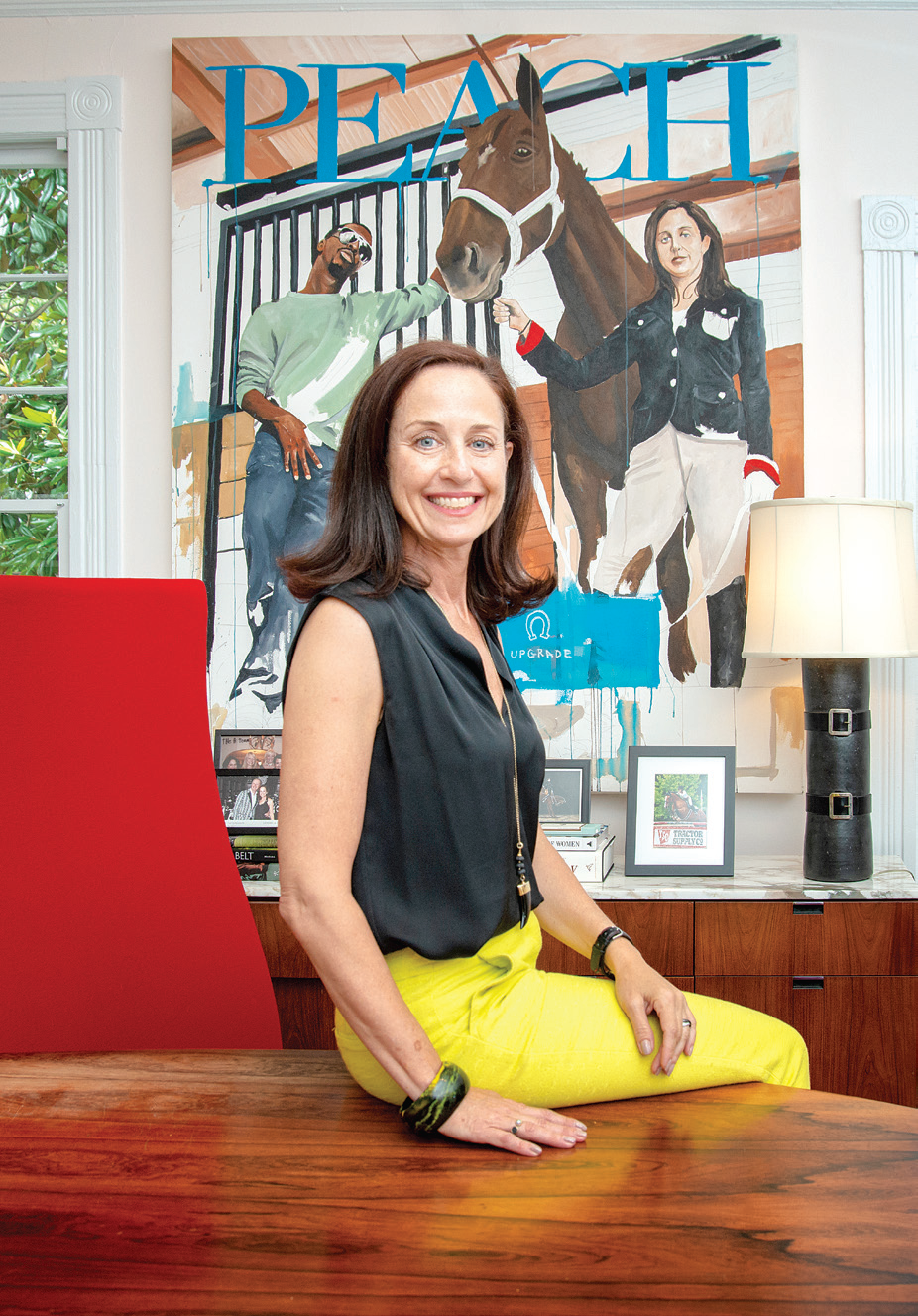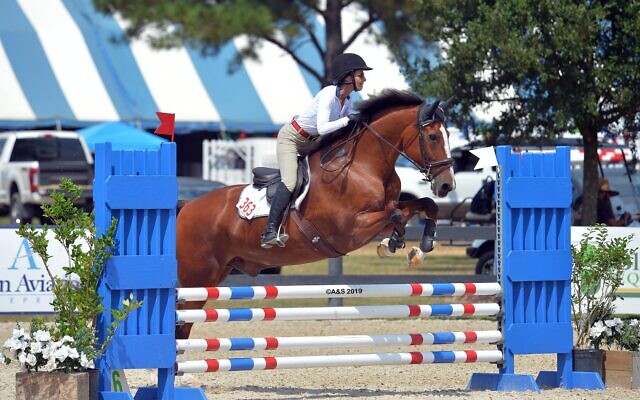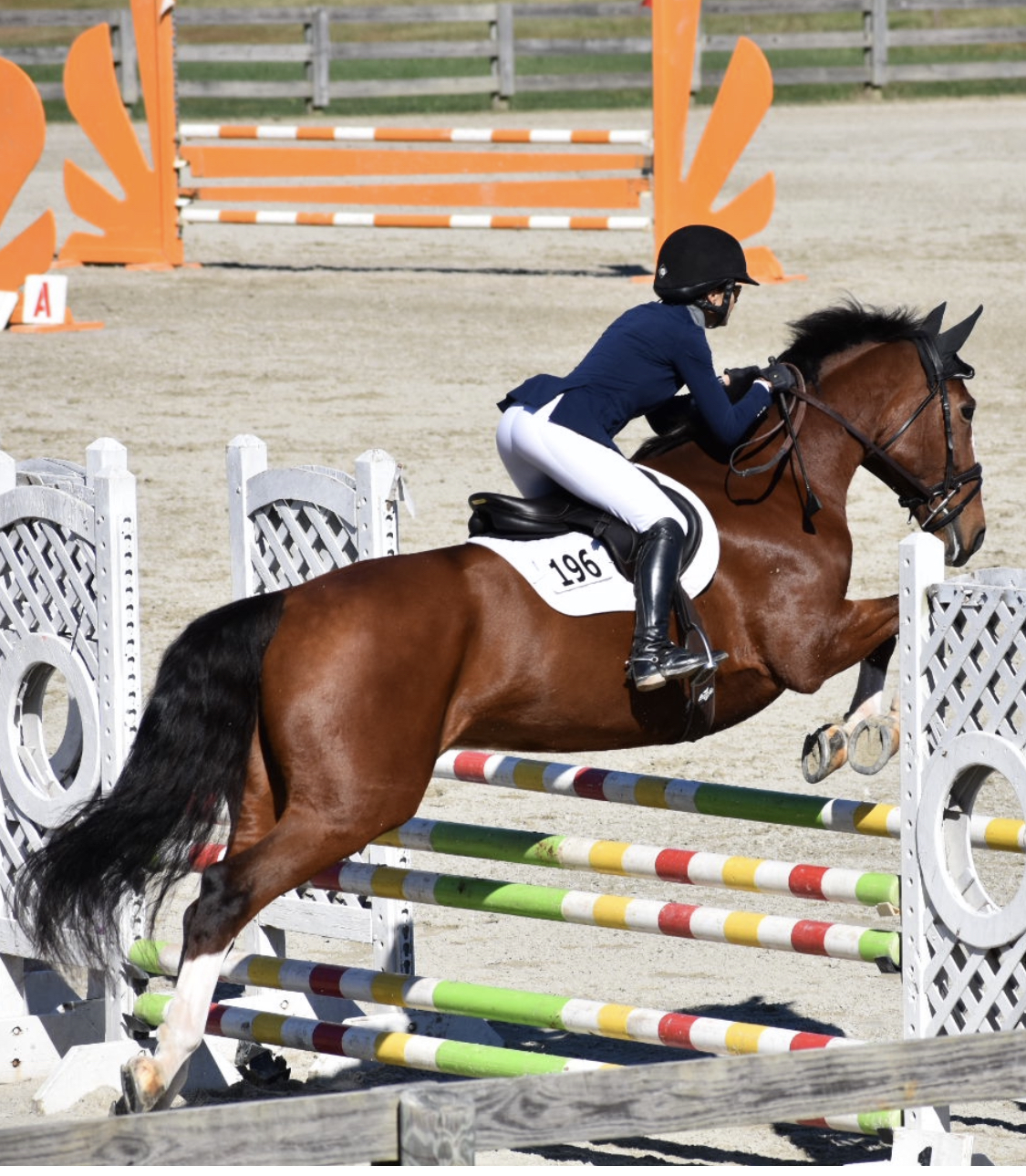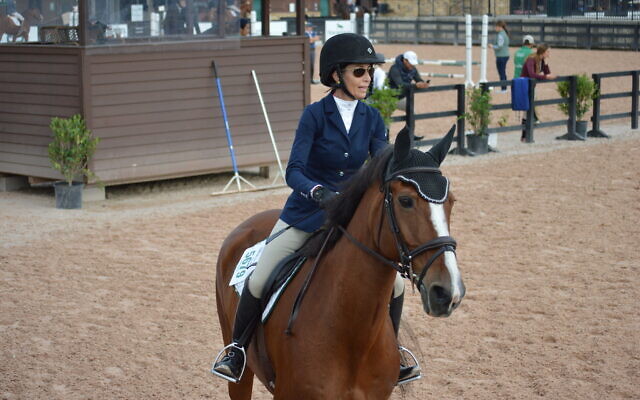PR Whiz Goes for the Jump
Liz Lapidus shares her love of her horse and the focus needed to jump.
After 37 years with the Atlanta Journal-Constitution and now with the AJT, , Jaffe’s focus is lifestyle, art, dining, fashion, and community events with emphasis on Jewish movers and shakers.
A leader in Atlanta’s public relations community for more than 20 years, Liz Lapidus shares her passion for the sport and love of her horse Benjamin. Many youngsters get smitten by equestrianism. The daughters of Jerry Seinfeld and Michael Bloomberg graced blue blood magazines as noted young female equestrians.
Think of the thrills when watching horses jump at the Olympics — the manners, accuracy, boldness, the flirt with danger, power and style with the outfits of breeches and boots. Consider the head game of the rider and the dependency on the horse, and who’s in control. Reminiscence about Old England and France, where the sport began.
Growing up in Miami, Lapidus recalled, “Horses have been a part of my life for as long as I can remember. I’ve been riding since I could walk and competing since I was 9. I can’t remember a time that I wasn’t crazy about horses. Benjamin is my current obsession. An 18-year old Draft Cross, I’ve owned him for six years and we compete in the “jumpers.”
Benjamin thrives in the show ring. Lapidus describes him as “earnest, stoic and putting his heart into his job.” She explained that jumpers are judged on speed and precision. A course of jumps is memorized and includes a set amount of time to hurdle them. The fastest horse who keeps all the rails up wins. While going fast is important, tight turns also play a key role in shaving off time. Tighter turns also make it more challenging to get the right approach to a jump and put the rider at risk of knocking down a rail, which adds unwanted points to the score.
Lapidus elaborates, “I like to get to the ring early and memorize my course. I walk through it with my trainer to measure how many ‘strides’ are in between jumps and develop strategies. We map out where we can cut time, so that when we’re ready to compete, we have a game plan. Riding is a very mental sport. Unlike a game played with a ball or bat, riding a horse factors not just your ability, but also a 1500-pound animal’s current mood. A horse can have an off day. Maybe he didn’t sleep well the night before. Perhaps it’s windy or he doesn’t like another horse in the ring. Still, I have a job to get done.”

She imagines galloping toward an obstacle with every intention of jumping over it, but the horse could have other ideas. Something could spook him. Or that jump that looks completely basic to the rider and similar to a dozen other jumps done before, but something about it is terrifying to the horse. And just like that, the rider is on the ground.
“I have fallen numerous times. I’ve never been seriously hurt. Still, I have to block all that out. You can’t focus on the danger; you have to keep your game face on. My horse counts on me for a committed ride. When I get in my head, it throws us both off.
After a lifetime of embracing this sport, I feel blessed that I’m still riding today. When you’re a kid, you only have a set number of years to compete before aging out to amateur status. Every show counts. These kids move up to flashier horses to take them to the next level of competition. When they’re done, they go off to college, get jobs, and horses become a distant memory. I picked riding back up as an adult, and I am fortunate to still be at it.”
As an amateur adult, she is in it for the love of the horse. Some see horses as an investment. For Lapidus, her horse is also a pet. She is happy just being at the barn and grooming him. “In fact, the discipline of cleaning and conditioning my tack (saddle, bridle) and brushing my horse is as much a part of the sport for me as competing.”
Lapidus rides three times a week. Benjamin lives at Three Bears Farm in Cartersville, an hour north of Atlanta. She is very organized with her time to give her work team and clients what they need, show up for family, and still be present when she’s at the barn.
“Owning a horse is a huge luxury, but it remains my passion. Some people live to work; others work to live. I live and work to ride my horse.”






comments